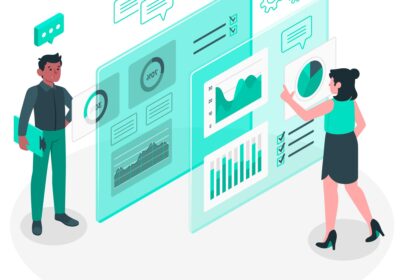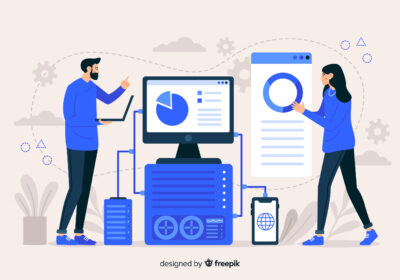CRM is no longer just a software category — it’s now the nervous system of how modern businesses connect with customers. But in 2025, the CRM landscape is evolving faster than ever, shaped by AI, hyper-personalization, and the shift to experience-first engagement.
So what’s trending in CRM processes this year? More importantly, how can businesses rethink CRM not just as a sales tool, but as a growth engine?
Let’s break it down.
1. AI-Powered Relationship Intelligence
CRMs are getting smarter. It’s not just about tracking leads anymore — it’s about predicting intent, sentiment, and next-best actions.
-
Conversational AI is being used to automatically log meeting insights, draft follow-ups, and personalize outreach at scale.
-
AI-driven lead scoring models now analyze behavioral signals across email, web, and social to help sales teams focus on high-conversion targets.
-
Tools like Microsoft Dynamics and Salesforce Einstein are already integrating this intelligence natively.
Takeaway: CRM processes are moving from reactive to predictive — and that’s a game-changer for B2B and B2C alike.
2. Revenue Operations (RevOps) Integration
In 2025, more businesses are aligning their sales, marketing, and customer success processes under a unified RevOps function — with CRM as the central hub.
-
This means CRMs are evolving to support multi-department workflows, not just sales pipelines.
-
You’ll find shared dashboards, unified KPIs, and tighter process alignment across the buyer journey.
Why it matters: RevOps-driven CRM setups improve forecast accuracy, reduce silos, and drive better lifecycle engagement.
3. No-Code & Low-Code CRM Customization
Gone are the days when CRM changes required developer tickets and IT wait times. Today’s top CRM platforms allow:
-
Business users to build workflows, automations, and dashboards using drag-and-drop tools.
-
Modular integrations via APIs and plug-ins that let companies tailor CRM to industry-specific needs without vendor lock-in.
Platforms like HubSpot, Zoho, and Dynamics are doubling down on this no-code movement.
Good news for teams: It’s now easier (and cheaper) to keep CRM aligned with how your teams actually work.
4. Omnichannel Customer Journeys
The modern customer journey spans email, WhatsApp, chatbots, LinkedIn, and sometimes even good old-fashioned calls. CRM systems are being retooled to:
-
Unify customer touchpoints in one timeline
-
Enable real-time engagement across channels
-
Automate follow-ups based on cross-channel behavior
Whether it’s integrating WhatsApp Business API or connecting with social CRM tools, businesses are doubling down on connected engagement.
5. Data Privacy Built into CRM Workflows
With global data privacy laws tightening (think GDPR, DPDP in India, and more), businesses in 2025 are prioritizing data governance inside CRM processes.
-
Consent tracking, opt-out flows, and data retention policies are no longer optional — they’re becoming part of onboarding workflows.
-
Leading CRMs are embedding privacy-by-design principles directly into contact management and automation rules.
Bottom line: If your CRM isn’t helping you stay compliant, it’s a liability.
6. Self-Service and CX Automation
Customers don’t always want to talk to sales. In fact, many prefer self-service journeys.
CRMs are now being integrated with:
-
Knowledge bases and chatbots
-
Self-booking systems for demos or meetings
-
Automated onboarding flows
And all of this activity gets tracked back into the CRM — giving you a clearer picture of the digital body language of each customer.
7. Native CRM + ERP Sync for Unified Data
In 2025, more companies are moving toward CRM and ERP convergence — meaning customer data and operational data are finally speaking to each other.
Use cases include:
-
Auto-syncing customer orders, invoices, and support history
-
Sales teams accessing delivery timelines or payment status in CRM
-
Real-time alerts for upsell or churn based on ERP metrics
Platforms like Microsoft Dynamics 365 and NetSuite are leading this trend.
Final Thoughts: CRM Is Now a Strategy, Not Just a Tool
The takeaway from all this? CRM is no longer just about managing contacts or closing deals. It’s about building an end-to-end customer experience engine — powered by real-time data, automation, and intelligence.
At Verbat, we help businesses modernize their CRM processes — from selecting the right platform to customizing workflows that fit your teams, not the other way around.




